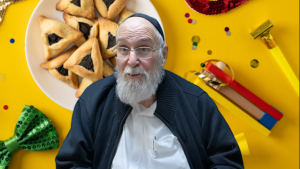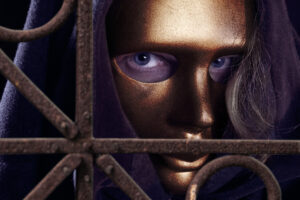And The King Extended His Golden Scepter
OK, so we were spared. And for over 2000 years, Jews have celebrated the holiday of Purim. But what’s so special about Purim? Haven’t we seen innumerable villains rise up against us, trying to destroy our nation? Don’t we declare in the Passover Haggadah every year, “In every generation, they rise against us to annihilate us, but the Holy One, blessed be He, saves us from their hand”?
Furthermore, we celebrate Passover because the Jews were freed from bondage and were eventually led to the Holy Land, not to mention receiving the Torah and becoming a nation along the way. After the Purim miracle, the Jews were still stuck in Persia under the evil King Achashveirosh. Isn’t this a far cry from the miracles of the Redemption from Egypt, or even the Chanukah story where at least we defeated the enemy and reclaimed our Holy Temple?
The Megillah begins by recounting the incredible wealth and grandeur of Achashveirosh and his royal court. The king hosts a world-class party – celebrating, according to our Sages, the expiry date of the prophecy to redeem the Jews. It’s been 70 years since the Holy Temple was destroyed and we went into exile. Achashveirosh wants to drive home the message that God has abandoned us and we should fear only him. Audaciously, he adorns himself in the clothing of the Kohen Gadol at the party.
Haman, the archenemy of the Jews, takes his cue from the king and decides now is the opportune time to get rid of the Jews once and for all. To accomplish this, he plans to severe our special connection with God by demanding that everyone bow to him and to the idol that he’s wearing. “But Mordechai would not kneel or bow” (Esther 3:2).
Mordechai the Tzaddik saw through Achashveirosh’s and Haman’s plot. He wasn’t impressed by their honor and glory, because he knew this was only God’s honor being manifested through them. Mordechai understood that if this was the king of Persia’s honor, how much greater is the King of the Universe’s honor! So Mordechai feared only God.
“The pur (lot) was cast before Haman from day to day and from month to month [to select the day to annihilate the Jews]” (ibid. 3:7). The way of Haman, who represents evil, is to “cast” us down with negativity little by little, day by day, month by month, until we have completely fallen away from our special relationship with God. Even today, Haman frightens the exiled Jew by continually sending him negative messages. “Your enemies have destroyed your Temple – give up!”
Mordechai commanded Esther, who represents the Jewish people, to beseech the king. But Esther replied, “I haven’t been summoned in 30 days” (ibid. 4:11). She was saying that her relationship with the True King had gotten stale; she didn’t feel fit to approach Him anymore. But Mordechai knew that God’s love for us is eternal and that Esther had been influenced by Haman’s evil mindset. There’s no such thing as despair – if we have fallen, we must pick ourselves up again, because there is always hope. Everything can be reversed for the good! So Esther was also able to rise above fear and approach the King.
“And the King extended to Esther the golden scepter” (ibid. 5:2). On that day, God showed us that no matter how far one may fall and no matter what mistakes he’s made, He will extend Himself to that person and bring about his ultimate triumph.
This is the true miracle of Purim, which is even greater than the miracle of the Exodus from Egypt. Despite the evil Achashveirosh still being in power, God showed us that there is nothing to fear at all. Whether it is the mightiest monarchs threatening us, or our feelings of distance from God, they are all mere illusions. Through the teachings of the Tzaddikim, we can come to know that all negativity can be elevated and used as a medium to bring us closer to the One Above.
Based on Hilkhot Bekhor Beheimah Tehorah 4
A Freilichen Purim! Purim Samei’ach!
- 0 comment






















